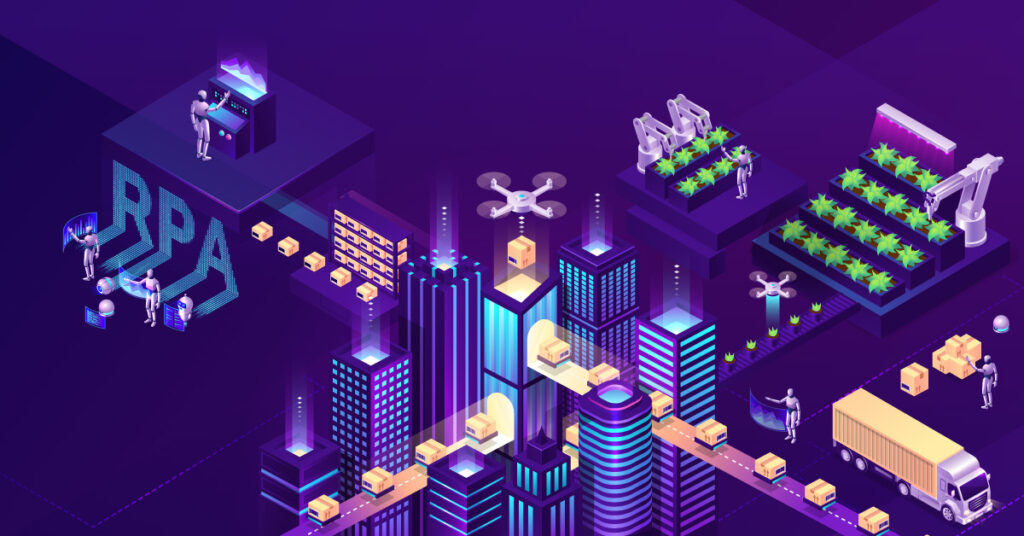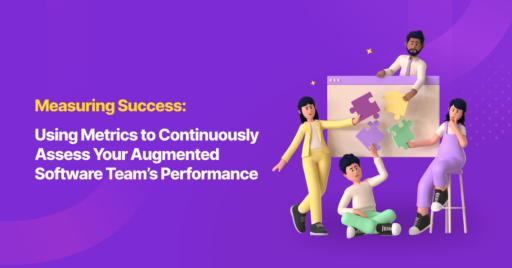Given the alarming increase in the world’s population over the years, the world population projection is 8.1 billion by 2025- an over 400 million addition. The implication is crystal clear, traditional ways of doing things will definitely fail to suffice this growing population.
To keep up with the trend, industries such as agriculture and logistics where manpower is highly needed will have to opt for a more efficient way to equip their employees with the latest technology to cater for the needs of this aggressively growing population. This is by simply cashing in on the present technological advancement to maximize manpower and improve their output such that they satisfy the present and future unprecedented high increase in the demand for their services without hassle.
Emerging Challenges in Agriculture
The goal of agriculture is to see to the production of sufficient food, feed, fiber, and fuel to meet the needs of a sharply rising population. However, there are several background challenges attached to meeting these goals. These challenges include ensuring a coordinated string of important farm activities, taking cognizance of the varying soil conditions and climatic change with their impact on specific plants and livestock, keeping track of livestock welfare and plant health through a conscientious pest study and control, fluctuating commodity prices, and trade issues.
Emerging Challenges in Supply Chain and Logistics
The logistics industry constitutes the backbone of the world’s economy. Just as its name implies, it is the driving force of any economy. This is because it encompasses the laborious task of having to meet the increasing demand for the transportation of purchased raw materials, goods as well as other mobile services. This task becomes more tasking due to the transformation of the world to a global village, which has necessitated the increase of e-commerce. People now find comfort in shopping online and prefer their goods transported to their doorsteps immediately without hassle.
What is implied by the aforementioned is that logistics companies will now have to deal with processing chunks of information and data without error. This requires more hands to work tirelessly for an endlessly long period paying attention to details while they track shipments and update the owners. They also have to deal with expensive logistical operations that need swift upstream supply chain management. What, therefore, remains undisputed is that actors in the supply chain and logistics industry need to readjust the traditional ways to incorporate the automated process that has recently been the atmosphere pervasive.
Robotic Process Automation as the Way Out
Considering the numerous challenges facing agriculture and logistics, it is no gainsaying that there has to be a paradigm shift from working hard to working smart. In essence, there has to be a more efficient yet effortless way of meeting the ever-increasing demand for quality food and logistics – this is where robotic process automation comes in to satisfy consumers’ varying desires and expectations of the 21st century.
Robotic Process Automation is a digitized way of deploying cutting-edge technology to emulate human-computer interaction and automatically run complex tasks and other industrial activities. RPA has proven to be handy in the automation of predominantly repetitive tasks. It allows enterprises to divert their attention to other key areas that require strict human intervention and creativity, consequently bringing about increased productivity.
Over 72% of companies have jumped on the bandwagon. This is because RPA software requires zero prior knowledge or expertise in programming to be operated. With the knowledge of how the RPA system functions, any employee can adapt RPA to automate their activities and improve their efficiency at work.
The question is how can RPA benefit Agribusiness and Logistics?
The Benefits of RPA in Agriculture
Just as it has proven to be handy in other industries, RPA can help agriculture with a software package that creates an interface that empowers enterprise farmers to have absolute control over agricultural activities.
In crop seeding, for instance, RPA can help you initiate a soil property identification process that helps in checking soil quality and density. This guides the robotic seeding attachment on the placement of seeds in locations and depths appropriate for efficient growth on the farm. Also, a micro-sprayer can help curb the excessive use of herbicides by using advanced sensor vision technology and image recognition to detect weeds on the farm and directly applying the appropriate quantity of herbicides to them.
When it comes to crop harvesting, a computer-vision robotic attachment can help in identifying and plucking the ripe fruits on the farm. This is done at a fast pace with careful handling of the fruits such that it causes no bruise.
RPA is also useful for monitoring crops, consequently retrieving useful and verifiable information for effective planning. As against the traditional, time-consuming, and energy-sapping practice of manual crops’ development examination, RPA is poised to help farmers gather precise data instantly for an informed management cycle and bring about modern agriculture. It employs data acquisition software installed to work with sensors, cameras, and other measurement tools attached to a tractor or other farm vehicle. The information is stored either directly to the device through synchronization using the internet connection or to an external drive.
The Benefits of RPA in Logistics
Considering the fact that the logistics industry is often inundated with tons of orders simultaneously from different impatient clients, there is the need to institutionalize a system that automatically responds to those requests. Robotic Process Automation is crucial to the supply chain development and its management. Companies now deployed robots to expedite such actions as generating consignment notes, scheduling and tracking of shipments, data entry automation, and fast-tracking the whole order-to-cash management consequently eliminating human error.
Also, the installation of bots enables logistics companies to achieve substantial customer responsiveness and reduces operational costs to the barest minimum. Interestingly, RPA technology has proven to be swift to install and deploy, takes lesser time to improve work procedure consequently maximizing manpower and output, skyrockets efficiencies and ultimately brings about a huge return on investment (ROI).
With decades of experience, Mitrais offers a wealth of knowledge, world-class tech expertise along with proven processes executed by remote teams. Rated as Indonesia’s leading provider of offshore development services by Forrester Research, our services are designed to help your business perform to your expectations. Our compelling mix of western innovation and eastern productivity sustains Mitrais in its preeminent position in the Asia Pacific region.
Now, together with UIPath, we provide end-to-end support from the stage of defining RPA strategy and governing policy to the implementation and maintenance support. Contact us now to get a free consultation.






